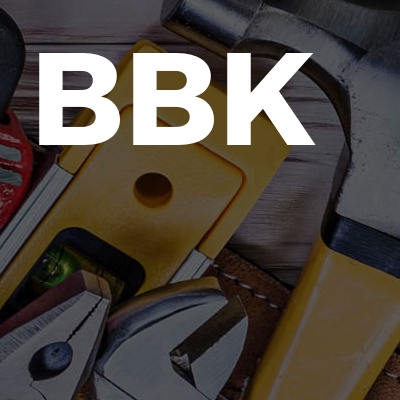Introduction to Kitchen Installation in Shropshire
Kitchen installation in Shropshire is an exciting venture that transforms the heart of your home into a functional and stylish space. Whether you're renovating an existing kitchen or building a new one, understanding the process and options available is crucial. This article will guide you through the various aspects of kitchen installation, ensuring you make informed decisions that suit your needs and preferences.
Understanding the Basics of Kitchen Installation
Before diving into the specifics, it's essential to grasp the basics of kitchen installation. This process involves planning, designing, and executing the setup of kitchen components such as cabinets, countertops, appliances, and fixtures. A well-installed kitchen not only enhances the aesthetic appeal of your home but also improves its functionality and value.
Key Components of a Kitchen
- Cabinets: These provide storage space and contribute significantly to the kitchen's overall look.
- Countertops: Essential for food preparation, they come in various materials like granite, quartz, and laminate.
- Appliances: From ovens to refrigerators, choosing energy-efficient models can save money in the long run.
- Fixtures: Sinks, taps, and lighting fixtures add the finishing touches to your kitchen.
Importance of Professional Installation
While DIY projects are tempting, professional kitchen installation ensures precision and quality. Experts have the experience and tools necessary to handle complex tasks, reducing the risk of costly mistakes. Moreover, professional installers in Shropshire are familiar with local building codes and regulations, ensuring your kitchen is compliant and safe.
Planning Your Kitchen Installation
Proper planning is the cornerstone of a successful kitchen installation. It involves setting a budget, choosing a design, and selecting materials and appliances that align with your lifestyle and preferences.
Setting a Budget
Establishing a budget is the first step in planning your kitchen installation. Consider the costs of materials, labour, and any unexpected expenses that may arise. It's wise to allocate a portion of your budget for contingencies to avoid financial strain.
Choosing a Design
The design of your kitchen should reflect your personal style while maximising space and functionality. Popular kitchen designs include:
- Traditional: Features classic elements like wood cabinets and ornate details.
- Modern: Emphasises sleek lines, minimalism, and high-tech appliances.
- Rustic: Incorporates natural materials and a cosy, homely feel.
Selecting Materials and Appliances
When choosing materials and appliances, consider durability, maintenance, and energy efficiency. For instance, granite countertops are durable but require regular sealing, while stainless steel appliances are easy to clean and long-lasting.
Finding the Right Kitchen Installer in Shropshire
Choosing the right installer is crucial for a successful kitchen installation. Look for professionals with a proven track record, positive reviews, and relevant certifications.
Researching Potential Installers
Start by researching local kitchen installers in Shropshire. Check online reviews, ask for recommendations from friends and family, and visit showrooms to see their work firsthand. A reputable installer will have a portfolio of completed projects and satisfied clients.
Evaluating Quotes and Contracts
Once you've shortlisted potential installers, request detailed quotes and compare them. Ensure the quotes include all aspects of the installation, such as materials, labour, and any additional services. Carefully review the contract terms and conditions before signing to avoid misunderstandings later.
The Kitchen Installation Process
The kitchen installation process involves several stages, each requiring careful attention to detail. Understanding these stages will help you anticipate what to expect and ensure the project runs smoothly.
Initial Consultation and Design
The process begins with an initial consultation where you discuss your vision, budget, and requirements with the installer. Based on this information, the installer will create a design plan that outlines the layout, materials, and timeline for the project.
Preparation and Demolition
Before installation can begin, the existing kitchen must be prepared. This may involve demolishing old cabinets, removing appliances, and addressing any structural issues. Proper preparation ensures a clean slate for the new installation.
Installation of Cabinets and Countertops
Once the space is ready, the installation of cabinets and countertops begins. This stage requires precision to ensure everything fits perfectly and functions as intended. Professional installers will measure and align components accurately, avoiding gaps or misalignments.
Appliance and Fixture Installation
After the cabinets and countertops are in place, appliances and fixtures are installed. This includes connecting plumbing and electrical systems, ensuring everything is safe and operational. Installers will test each appliance to confirm it's working correctly.
Final Touches and Inspection
The final stage involves adding finishing touches such as paint, backsplash, and lighting. Once completed, a thorough inspection is conducted to ensure everything meets quality standards and your expectations.
Common Challenges in Kitchen Installation
While kitchen installation can be a rewarding experience, it may present challenges that require careful management.
Dealing with Unexpected Issues
During installation, unexpected issues such as structural problems or outdated wiring may arise. It's essential to address these promptly to prevent delays and additional costs. Working with experienced installers can help mitigate these challenges.
Managing Delays
Delays can occur due to various factors, including supply chain disruptions or unforeseen complications. Maintaining open communication with your installer and having a flexible timeline can help manage these delays effectively.
Ensuring Quality and Compliance
Ensuring the quality of materials and workmanship is crucial for a successful installation. Additionally, compliance with local building codes and regulations is essential to avoid legal issues. Hiring certified professionals can provide peace of mind in this regard.
Benefits of a Professionally Installed Kitchen
A professionally installed kitchen offers numerous benefits that enhance your home's value and your quality of life.
Improved Functionality
A well-designed kitchen maximises space and efficiency, making cooking and entertaining more enjoyable. Professional installers can optimise the layout to suit your needs, ensuring everything is within easy reach.
Enhanced Aesthetic Appeal
A professionally installed kitchen adds a touch of elegance and sophistication to your home. With a wide range of design options available, you can create a space that reflects your personal style and complements your home's decor.
Increased Property Value
A modern, functional kitchen is a significant selling point for potential buyers. Investing in a professional installation can increase your property's value and appeal, making it a wise long-term investment.
Maintaining Your New Kitchen
Once your kitchen installation is complete, proper maintenance is essential to preserve its beauty and functionality.
Regular Cleaning and Upkeep
Regular cleaning is vital to keep your kitchen looking its best. Use appropriate cleaning products for different surfaces and appliances to prevent damage. Establish a routine for tasks like wiping down countertops, cleaning appliances, and mopping floors.
Addressing Wear and Tear
Over time, wear and tear are inevitable. Address minor issues promptly to prevent them from becoming major problems. For example, fix leaky taps, replace worn-out seals, and tighten loose cabinet handles as needed.
Scheduling Professional Inspections
Periodic professional inspections can help identify potential issues before they escalate. Consider scheduling annual inspections to ensure your kitchen remains in top condition and continues to function efficiently.
Frequently Asked Questions
- How long does a kitchen installation take? The duration varies depending on the project's complexity, but it typically takes 2-4 weeks.
- Can I install a kitchen myself? While possible, professional installation is recommended for quality and safety.
- What is the average cost of kitchen installation in Shropshire? Costs vary based on materials and design, but the average ranges from £5,000 to £15,000.
- Do I need a permit for kitchen installation? Permits may be required for structural changes or electrical work. Check with local authorities.
- How can I ensure my kitchen is energy-efficient? Choose energy-efficient appliances and LED lighting to reduce energy consumption.
- What should I do if I encounter issues post-installation? Contact your installer to address any concerns or warranty claims.
Final Thoughts on Kitchen Installation in Shropshire
Embarking on a kitchen installation in Shropshire is an exciting journey that can significantly enhance your home's functionality and aesthetic appeal. By understanding the process, planning carefully, and choosing the right professionals, you can create a kitchen that meets your needs and exceeds your expectations. Remember, a well-installed kitchen is not just a place to cook but a space to create memories with family and friends.
















